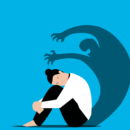OCD, ERP, & doubt sensitivity: Shattering the illusion of certainty
Many individuals with OCD hunger for certainty. It’s a craving that often can’t be easily sated. Early conceptions of OCD from the 19th century acknowledged this issue directly, in that OCD was often termed the “doubting disease.” It is this need for certainty, the need to eliminate doubt, that leads many people with OCD to perform repetitive behaviors, which are known as rituals. For example, it is doubt about whether one’s hands are sufficiently clean that leads one to engage in repetitive hand-washing rituals. Likewise, uncertainty about whether a stove has been turned off (and worry about potentially dire consequences) can underlie checking rituals. Many different types of rituals involve reassurance-seeking behaviors. For people with OCD who have intrusive bad thoughts (e.g., What if I secretly want to hurt a family member? What if I don’t believe in God...
Read MoreOCD symptoms: the obvious (and the not so obvious)
Symptoms of OCD are everywhere. Turn on your television, and you’re likely to catch at least a fleeting glimpse of obsessive-compulsive disorder (OCD). Many popular TV shows feature characters with OCD (e.g., Emma on Glee, Monk), and it is through this lens that many members of the general population get their first exposure to OCD. Unfortunately, if your understanding of OCD is based solely on depictions in the popular media, you are likely to have a relatively limited (and perhaps, warped) sense of what OCD really is. The truth is that OCD symptoms can manifest in many different ways. Although some symptoms are more common (e.g., a fear about about germs or getting sick), other symptoms can be quite idiosyncratic and often go undetected by inexperienced psychologists. The unfortunate consequence of this is that many people with OCD don’t...
Read More




